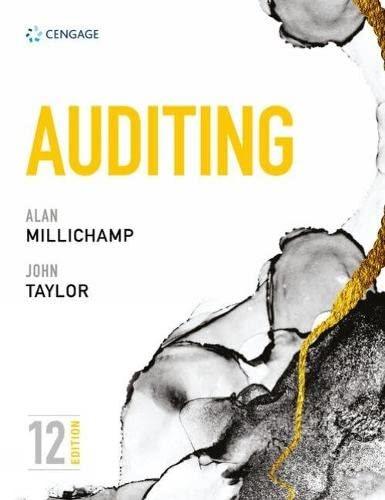Alset Ltd has 12 electrical appliance shops in the Midlands. The company maintains a warehouse in Bilston
Question:
Alset Ltd has 12 electrical appliance shops in the Midlands. The company maintains a warehouse in Bilston and supplies goods to the branches using two lorries. There is a central accounts department at the warehouse with five staff under the chief accountant Louise.
Supplies are ordered for the central warehouse from specific suppliers (these are changed as necessary and Toby, a director, is in charge of an effective system for selecting suppliers). An inventory control system is used in the central warehouse which works well.
The 12 shops are in the charge of individual managers who have autonomy over most aspects of the shop including hiring staff. They are expected to obtain supplies from the central warehouse but are permitted to buy some supplies elsewhere if the central warehouse does not stock items and there is customer demand. Prices for items supplied from head office are fixed by head office as there is central advertising with prices given.
The accounting system is:
• Shop managers send in a weekly form of requisition for supplies to the central warehouse which orders the good from approved suppliers.
• The supplies are invoiced at cost and the invoices form input for the central warehouse inventory control system.
• Supplies bought for individual shops are paid for by head office. The cost of items supplied to each shop is recharged to it by Head Office.
• Sales are made in the shops for cash or by credit card. These are recorded on till rolls and the managers count the takings daily each morning and bank the proceeds. They agree the till rolls and retain the bank paying in counterfoils and the till rolls. Petty cash and wages are taken out of takings before banking. Each manager maintains their own wages records, but payments to HM Revenue & Customs are made centrally. A weekly return is sent to head office showing takings and payments made from takings.
• Overheads of the branches such as rent, rates and electricity are paid for centrally.
• Inventory is counted half yearly by the managers and accounts prepared for each shop based on the data at head office. Action is taken if the profit margins are less than expected.
• Some sales are made on credit. The managers fill in the credit sale forms and keep the recording in the branches. They collect the instalments which are normally paid in cash. Full details of these receipts are sent to head office on the weekly return. Some credit sales customers pay direct to the head office bank account by standing order.
• Each shop manager is remunerated up to 50 per cent by a commission on the net profit of the shop they manage.
Required:
(a) Document the weaknesses in this system indicating the possible frauds and errors that could occur.
(b) Prepare a flow chart of this system.
(c) Devise auditing tests for the existing system indicating whether these are tests of control, substantive tests or analytical review.
(d) For each of the weaknesses identified in (a) above set out how the systems might be changed to eliminate the weakness.
Step by Step Answer:






